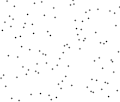Quicksort is an efficient, general-purpose sorting algorithm. Quicksort was developed by British computer scientist Tony Hoare in 1959 and published in...
71 KB (9,925 words) - 14:27, 31 May 2025
well-implemented quicksort, it has the advantages of very simple implementation and a more favorable worst-case O(n log n) runtime. Most real-world quicksort variants...
49 KB (5,718 words) - 08:39, 21 May 2025
the related quicksort sorting algorithm, it was developed by Tony Hoare, and thus is also known as Hoare's selection algorithm. Like quicksort, it is efficient...
9 KB (1,163 words) - 08:37, 1 December 2024
Sorting algorithm (section Quicksort)
exchange, selection, merging, etc. Exchange sorts include bubble sort and quicksort. Selection sorts include cycle sort and heapsort. Whether the algorithm...
71 KB (6,607 words) - 07:13, 5 July 2025
sort, but it is equivalent to quicksort as both recursively partition the elements based on a pivot, and since quicksort is in-place and has lower overhead...
5 KB (644 words) - 04:27, 5 April 2025
basis of efficient algorithms for many problems, such as sorting (e.g., quicksort, merge sort), multiplying large numbers (e.g., the Karatsuba algorithm)...
21 KB (2,894 words) - 09:50, 14 May 2025
performance and (asymptotically) optimal worst-case performance. It begins with quicksort, it switches to heapsort when the recursion depth exceeds a level based...
11 KB (1,227 words) - 09:46, 25 May 2025
Randomized algorithm (section Quicksort)
the expected running time is finite (Las Vegas algorithms, for example Quicksort), and algorithms which have a chance of producing an incorrect result...
33 KB (4,218 words) - 17:33, 21 June 2025
Multi-key quicksort, also known as three-way radix quicksort, is an algorithm for sorting strings. This hybrid of quicksort and radix sort was originally...
5 KB (700 words) - 05:09, 14 March 2025
Erlang (programming language) (section Quicksort)
1). fib_int(0, _, B) -> B; fib_int(N, A, B) -> fib_int(N-1, B, A+B). Quicksort in Erlang, using list comprehension: %% qsort:qsort(List) %% Sort a list...
43 KB (4,781 words) - 17:11, 16 June 2025
Raku (programming language) (section Quicksort)
list sorts to the empty list multi quicksort([]) { () } # Otherwise, extract first item as pivot... multi quicksort([$pivot, *@rest]) { # Partition. my...
47 KB (5,543 words) - 02:00, 10 April 2025
Consequently, quicksort needs O(log2 n) additional space. Although this non-constant space technically takes quicksort out of the in-place category, quicksort and...
8 KB (1,151 words) - 06:39, 30 June 2025
distinction in computer science, in 1980. Hoare developed the sorting algorithm quicksort in 1959–1960. He developed Hoare logic, an axiomatic basis for verifying...
27 KB (2,222 words) - 05:22, 6 June 2025
implementation) quickSort :: Ord a => [a] -> [a] -- Using list comprehensions quickSort [] = [] -- The empty list is already sorted quickSort (x:xs) = quickSort [a...
50 KB (4,580 words) - 14:07, 4 July 2025
MVEL (section Quicksort example)
algorithm def quicksort(list) { if (list.size() <= 1) { list; } else { pivot = list[0]; concat(quicksort(($ in list if $ < pivot)), pivot, quicksort(($ in list...
4 KB (312 words) - 20:55, 29 May 2025
of Donald E. Knuth, receiving his PhD in 1975. His thesis was entitled Quicksort and was named an outstanding dissertation in computer science. Sedgewick...
17 KB (1,550 words) - 21:35, 7 January 2025
much less efficient on large lists than more advanced algorithms such as quicksort, heapsort, or merge sort. However, insertion sort provides several advantages:...
22 KB (2,921 words) - 20:49, 22 June 2025
Las Vegas algorithm (section Randomized quicksort)
Execute Quicksort on A[1 to i-1] and A[i+1 to n]. Combine the responses in order to obtain a sorted array.""" A simple example is randomized quicksort, where...
17 KB (2,523 words) - 18:58, 15 June 2025
stack of blocks can be cantilevered, and the average case analysis of the quicksort algorithm. The name of the harmonic series derives from the concept of...
49 KB (6,219 words) - 15:21, 12 June 2025
algorithm: these are analogous refinements of the basic quickselect and quicksort algorithms, in that they both start with the quick algorithm, which has...
4 KB (524 words) - 18:03, 28 May 2025
used primarily as an educational tool. More efficient algorithms such as quicksort, timsort, or merge sort are used by the sorting libraries built into popular...
18 KB (2,309 words) - 13:38, 9 June 2025
Partial sorting (redirect from Partial quicksort)
partial_quicksort(A, i, j, k) is if i < j then p ← pivot(A, i, j) p ← partition(A, i, j, p) partial_quicksort(A, i, p-1, k) if p < k-1 then partial_quicksort(A...
8 KB (952 words) - 15:19, 26 February 2023
interest for designing sorting algorithms; in particular, variants of the quicksort algorithm that must be robust to repeated elements may use a three-way...
5 KB (656 words) - 08:21, 1 August 2024
adversary to arrange the data beforehand so that quicksort will perform in worst-case time. If, however, quicksort chooses some random element to be the pivot...
6 KB (794 words) - 12:55, 19 March 2024
Implementing quicksort, from the J Dictionary yields: sel=: adverb def 'u # [' quicksort=: verb define if. 1 >: #y do. y else. (quicksort y <sel e),(y...
19 KB (2,221 words) - 07:04, 26 March 2025
Nested function (section Quicksort)
last) { int pivotIndex = partition(); quickSort(first, pivotIndex - 1); quickSort(pivotIndex + 1, last); } } quickSort(0, size - 1); } The following is an...
20 KB (2,290 words) - 01:46, 11 February 2025
used primarily as an educational tool. More efficient algorithms such as quicksort, merge sort, or timsort are used by the sorting libraries built into popular...
9 KB (1,114 words) - 20:01, 4 January 2025













